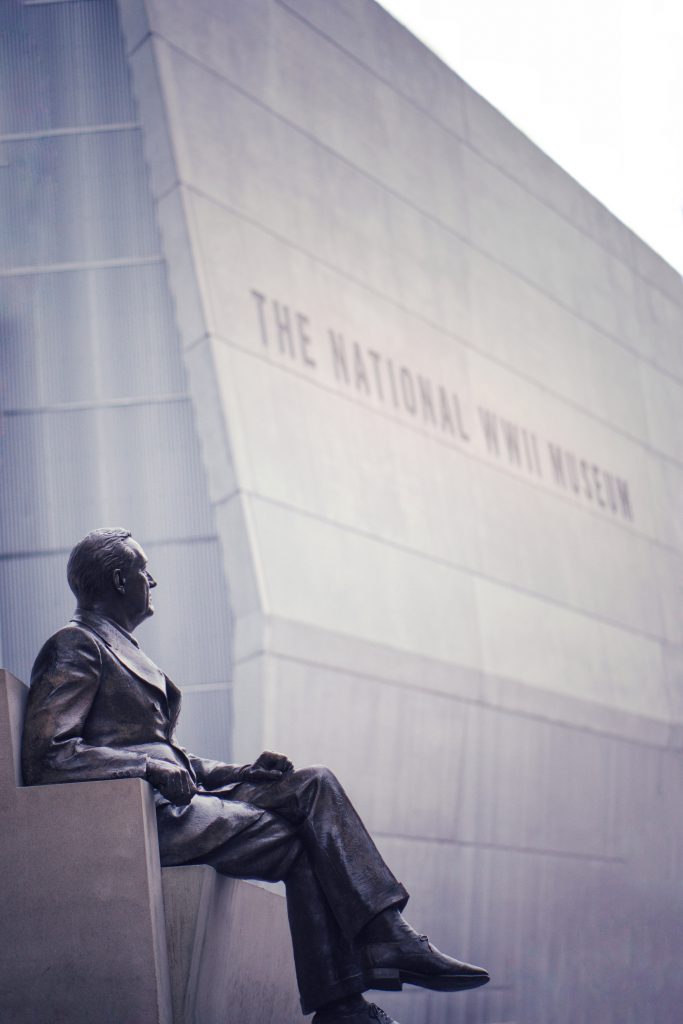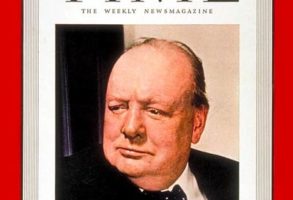
Published October 8, 2020
To understand Donald Trump’s behavior as a Covid-19 patient (leaving Walter Reed to wave at his supporters through the window of his SUV, or checking out of the hospital early and posing maskless on the White House balcony), you might liberate your mind from the distracting context of 2020 and consider two moments in history.
The first is March 4, 1933, the day of Franklin Roosevelt’s first inauguration. He told the American people, “The only thing we have to fear is fear itself.” That brave, inaccurate line became inspiring—especially as it was uttered by a man who had spent a decade fighting his way back from the catastrophe of polio. He accomplished that feat by acting in public as if he were not, in fact, crippled; he had trained himself to put on a painful show of walking normally.
The “fear itself” statement, like the “walking,” was a valiant lie. In truth, there was everything to fear. The U.S. economy had collapsed. Hitler had become chancellor of Germany. Doomy weather was settling upon the world.
I do not claim that Mr. Trump is FDR. The current president’s behavior suggests other precedents—touches of Roy Cohn, Norman Vincent Peale and George Patton as he might have been reimagined by Damon Runyon. When Mr. Trump tells his fellow citizens not to be intimidated by the coronavirus, not to let it “dominate” them, he does a perfectly Trumpian thing: He invites them to share in an optative, mind-over-matter metaphysics that is the key to his relationship to the truth and the workings of his presidency. It’s also, in part, the secret of America’s success as a country. All miracles come with a risk of charlatanism. No one bothers to hate an ineffectual man.
Think of a contrary dynamic. The Tet Offensive in early 1968, a massive North Vietnamese assault on cities and American strongholds in South Vietnam, was objectively a failure. But, especially as interpreted in the richly dramatic media version, Tet became a traumatic U.S. loss—a psychological catastrophe. It was the turning point of the long war.
American defeatism hardened into American defeat. Vietnam was a misbegotten war anyway—one that the U.S. deserved to lose; defeat there became a defining event in the history of the American self-image. The Biden-Trump generation remembers Tet as if it were yesterday.
Bravado and defiant panache have their uses in the conduct of leadership. Think of Lord Nelson at the Battle of Copenhagen, when he put his telescope to his bad eye so that he might claim he did not see his commander-in-chief’s signal flags ordering retreat. He then led on to victory. A medical emergency like a pandemic calls more for prudence than for showmanship and more for truth than for gallant lies. Up to a point. Mr. Trump always errs on the side of bravado. But he isn’t wrong to urge Americans to be brave, and not to disable their lives and economy by surrendering to fear itself.
Mr. Morrow is a senior fellow at the Ethics and Public Policy Center and author of “God and Mammon: Chronicles of American Money.”







